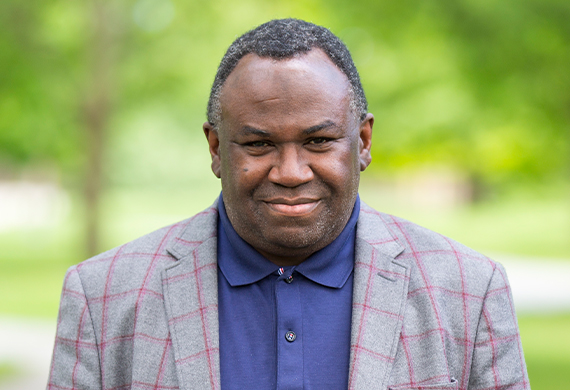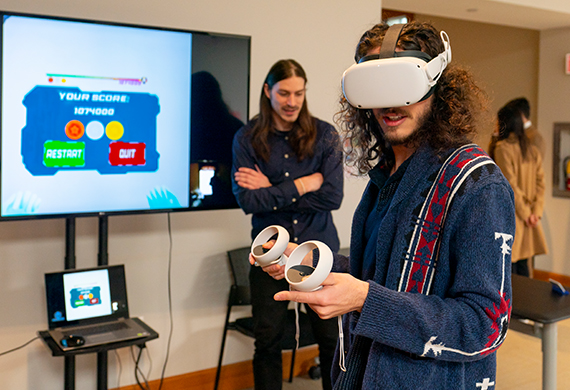Listening to Those Who Aren't Often Heard
Faculty member Tia Sherèe Gaynor is conducting groundbreaking work in New Orleans via a Department of Justice grant
Tia Sherèe Gaynor has always had a passion for social justice. “I have a keen interest in the practices and systems that are in place and how they impact marginalized populations such as people of color, the disabled, and the LGBTQ community.”
As Assistant Professor of Public Administration in the School of Management, Gaynor teaches graduate-level courses in public administration, but her research interests were developed during her pre-academic career. Before coming to Marist in 2011, Gaynor worked for a nonprofit law firm focused on inequities in the New Jersey public school system. She was also part of the development team at Rutgers University, where she spearheaded raising scholarship funds for Educational Opportunity Fund program students. Now at the helm of a U.S. Department of Justice (DOJ) grant that evaluates the experiences people with intersectional identities have with law enforcement, Gaynor has an opportunity to explore some of her key scholarly areas of inquiry—and bring about change.
Awarded in 2016, the grant is from the DOJ’s Office of Justice Programs and is part of the W.E.B. DuBois Program of Research on Race and Crime. With the $150,000, two-year grant Gaynor and her co-researcher Brandi Blessett (Ph.D., Rutgers-Camden) are examining the perspectives held by LGBTQ people of color with respect to law enforcement in New Orleans, Louisiana. A federal grant of this type is a first for Marist.
This project builds off previous research in which Gaynor evaluated DOJ investigation reports to determine whether institutional racism exists in local law enforcement agencies. While reading the report from the New Orleans Police Department, Gaynor found that discussions considering intersectionality—people with two or more marginalized identities—were unavailable. The project she developed “seeks to evaluate how policing has been used to subjugate individuals with intersecting identities in New Orleans,” said Gaynor. “These people have vastly different experiences than people with no or only one marginalized identity.”
Gaynor. “These people have vastly different experiences than people with no or only one marginalized identity.” Tia Sheree Gaynor
The first phase of the project was completed in 2017 and was comprised of interviews with LGBTQ people of color. Gaynor spent a month in New Orleans and found her subjects in myriad ways: community organizations, social media, hanging out in the community, and via word of mouth. What Gaynor and her fellow researcher learned was sobering. “One woman told a story of being home when someone was trying to break into her house, but she was not willing to call the police,” she recalled. The most revelatory finding? “Negative encounters with the police were routine for the people we spoke to—and that’s quite sad. For them, it’s just a fact of life.”

Phase two of the project will happen this summer and Gaynor is eager to dive back into the work. The research will culminate in a report to the DOJ synthesizing the findings. She plans to write several articles based on their findings and is scheduled to present her work at academic conferences in the United States and Canada. Long-term, she would welcome the opportunity to carry out similar research in other cities.
“My sense is that our findings in New Orleans are not unique,” said Gaynor. “I’d like to expand this research because the goal of this work is to give voice to people whose voices aren’t always part of the conversation.”



